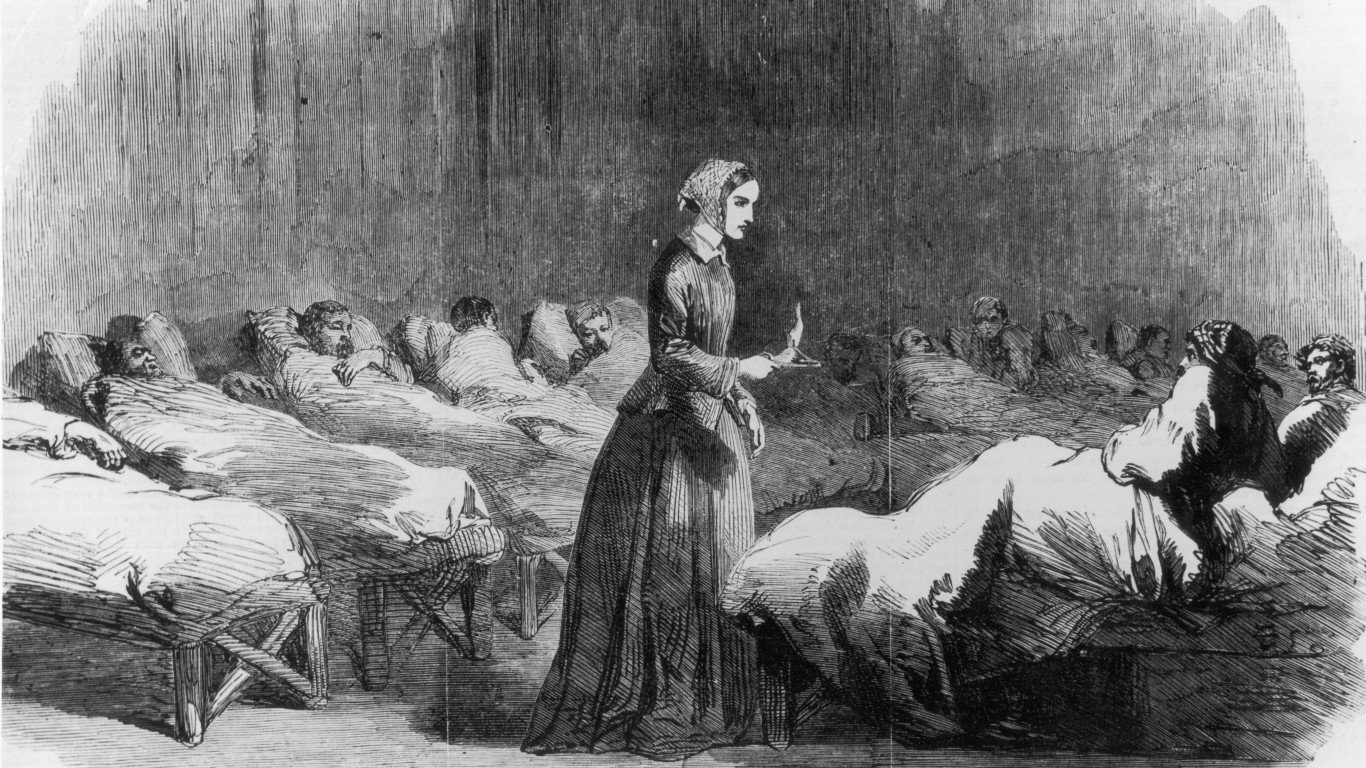

In “The Iliad,” Homer wrote that “war will be men’s business.” To this day, the belief that war is solely the domain of men is common in some circles, though both archaeological evidence and written records have demonstrated the involvement of women in roles of military leadership throughout history.
In 2020, anthropologists shared findings of skeletal remains belonging to both ancient Mongolians and North American hunter-gatherers indicating that women were involved in waging war. Joan of Arc and Queen Boadicea are but two historical women who led battles that influenced the course of history for the societies they fought for or against. (These are the most famous female rulers in history.)
To determine the greatest women in military history, 24/7 Wall St. used data from a survey by the USNI News, a publication of the U.S. Naval Institute, which conducted a survey of its readers asking “Who was the greatest woman in military history?” With over 2,400 responses tallied, these 10 women were named the most often. (Nos. 9 and 10 were linked in the survey results but are separated below.)
Click here to see the greatest women in military history
Of the 10 greatest women in military history, three are from the British Isles, two are from the Soviet Union, and one is from America. The No. 1 ranked military woman, Joan of Arc, believed she had been divinely chosen to serve her people. A wartime hero to the French, she demonstrated bravery as a young teen by helping end the Siege of Orléans. She was posthumously named a saint by the Catholic Church.
Some of the greatest women in military history are remembered more for their non-combat accomplishments than for their battlefield skills. Rear Admiral Grace Hopper of the U.S. Navy was a pioneer in computer programming, and her work contributed to strides made in machine learning and coding. Florence Nightingale’s methodological analysis of army hospital deaths contributed to the rise of epidemiology. (These are the greatest women innovators and inventors.)
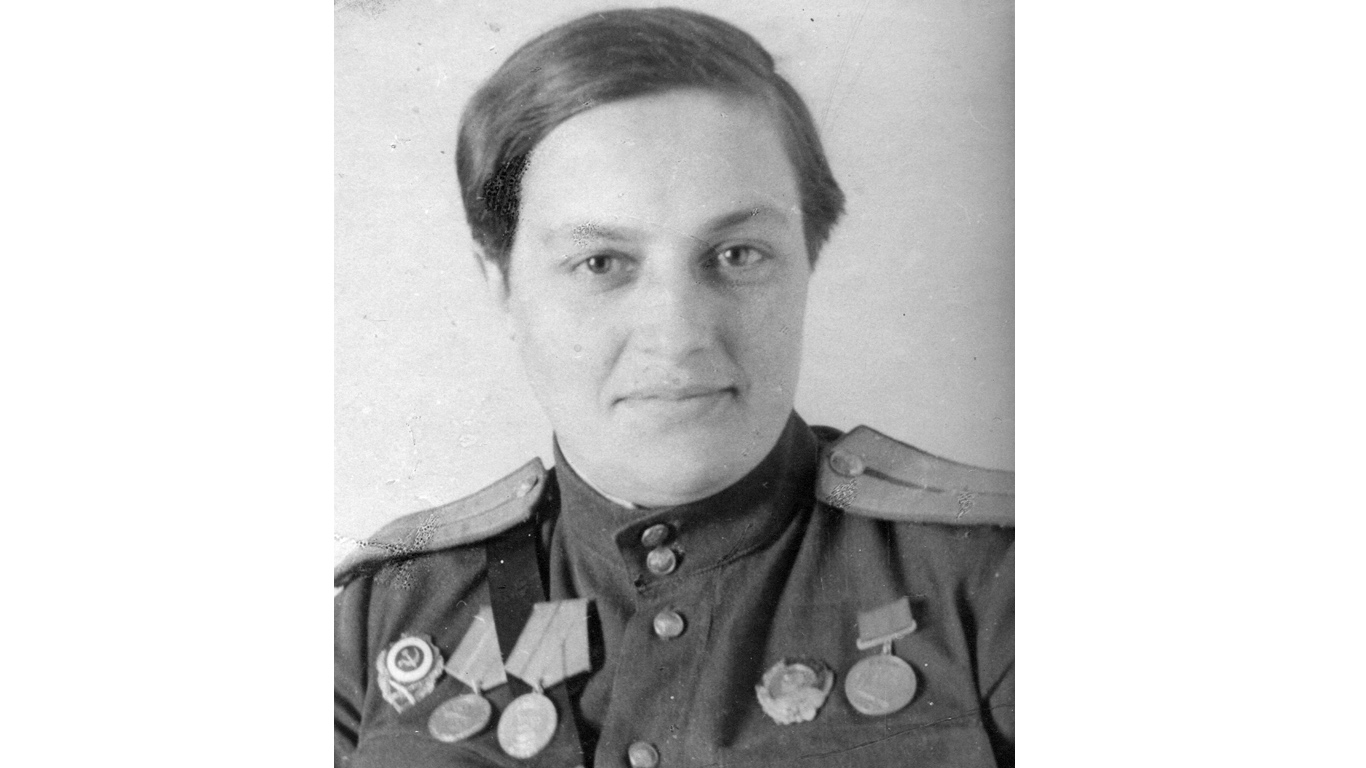
10. Lyudmila Pavlichenko (1916-1974)
Lyudmila Pavlichenko and Lilya Litvak both fought on behalf of the Soviet Union’s Red Army during WWII. Pavlichenko was an expert sniper, earning herself the nickname “Lady Death”. Despite an initial push from the military recruiting office to become a nurse, Pavlichenko quickly proved her shooting skills by killing two enemy soldiers. She gained both notoriety and respect for her work, with a total of 309 kills in 1941 and 1942.
[in-text-ad]

9. Lilya Litvak (1921-1943)
Lilya Litvak became known as the White Rose of Stalingrad, securing her place as the world’s first female fighter ace. Daring and talented, Litvak became the first woman in history to kill an enemy in the air during combat. She had the highest number of kills for any female air pilot. Litvak met her untimely death in 1943, when she was shot down during the Battle of Kursk.

8. Florence Nightingale (1820-1910)
Non-fatal wounds sustained during battle could become deadly for soldiers in an unhygienic army hospital environment. Florence Nightingale, a British nurse, knew the importance of good hygiene in medical settings. Nightingale enacted safer practices in the army hospitals where she worked during the Crimean War in 1854, helping to reduce soldier death rates. She eventually became a statistician and helped determine the staggering number of preventable diseases that arose from battlefield wounds. Her face appeared on the U.K.’s £10 note from 1975 through 1992.
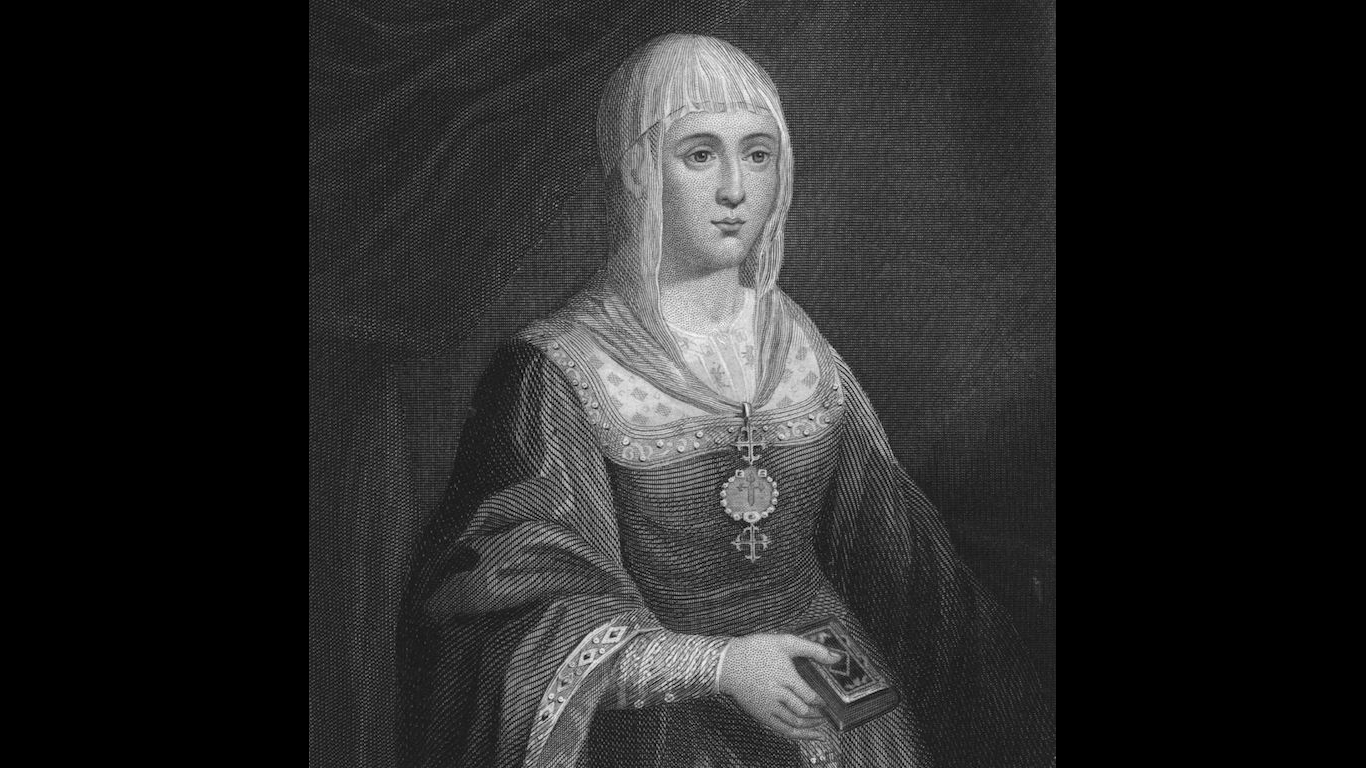
7. Queen Isabella I of Castile (1451-1504)
Rather than wed a suitor chosen for her by her male family members, Queen Isabella I of Castile helped unify Spain by marrying Ferdinand, the heir apparent to the kingdom of Aragon. She helped win back Spain from the Moors during the end of the Reconquista in the late 1400s, issued the Alhambra Decree expelling the Jews from the country, launched the Spanish Inquisition, financed the first voyage of Christopher Columbus, and contributed to military medicine by creating mobile field hospitals that could assist wounded soldiers.
[in-text-ad-2]
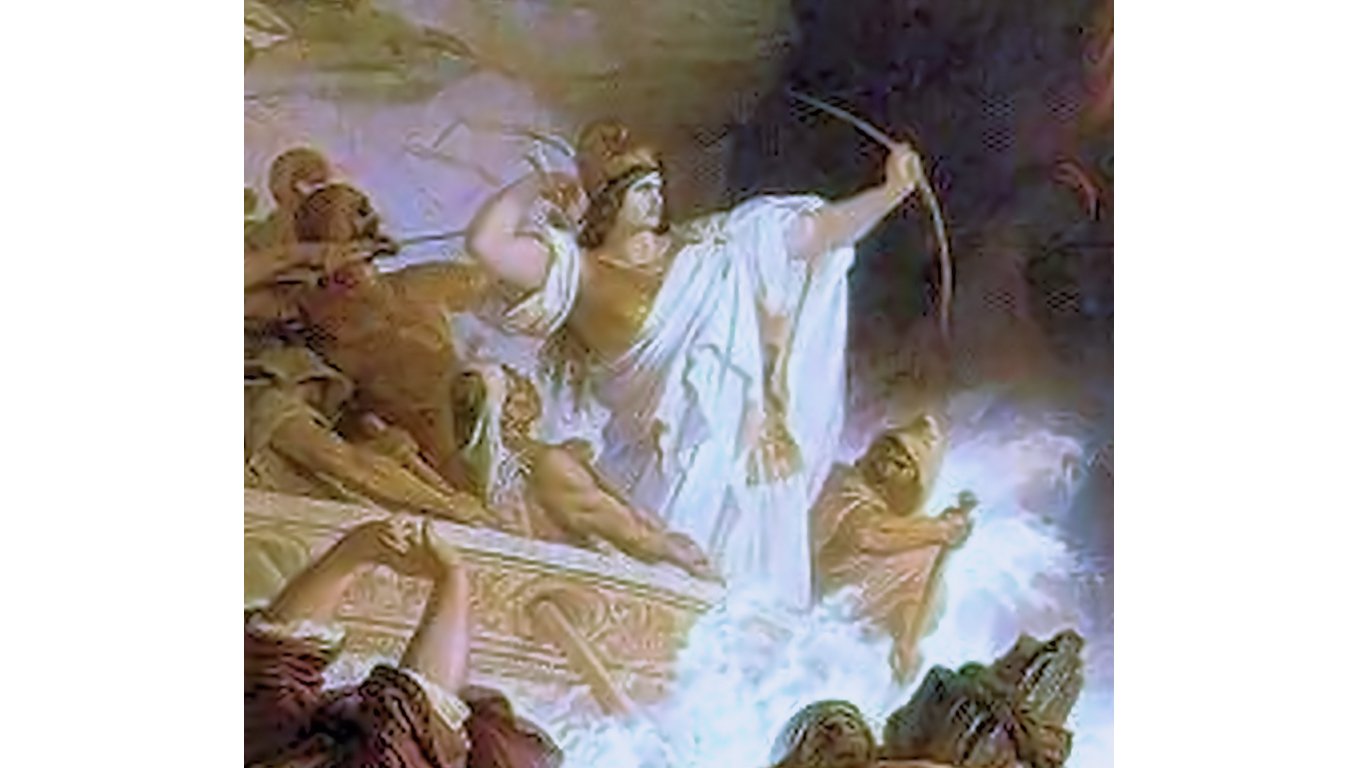
6. Queen Artemisia I of Caria (5th century B.C.)
Named after the goddess Artemis, who was an expert archer and the goddess of hunting, Queen Artemisia I of Caria assisted Persia’s King Xerxes in his quest to conquer Greece. She served at the helm of his naval fleet during the Battle of Salamis in 480 B.C., and though her fleet was defeated, she remained in high regard, and continued to serve as counsel to Xerxes.
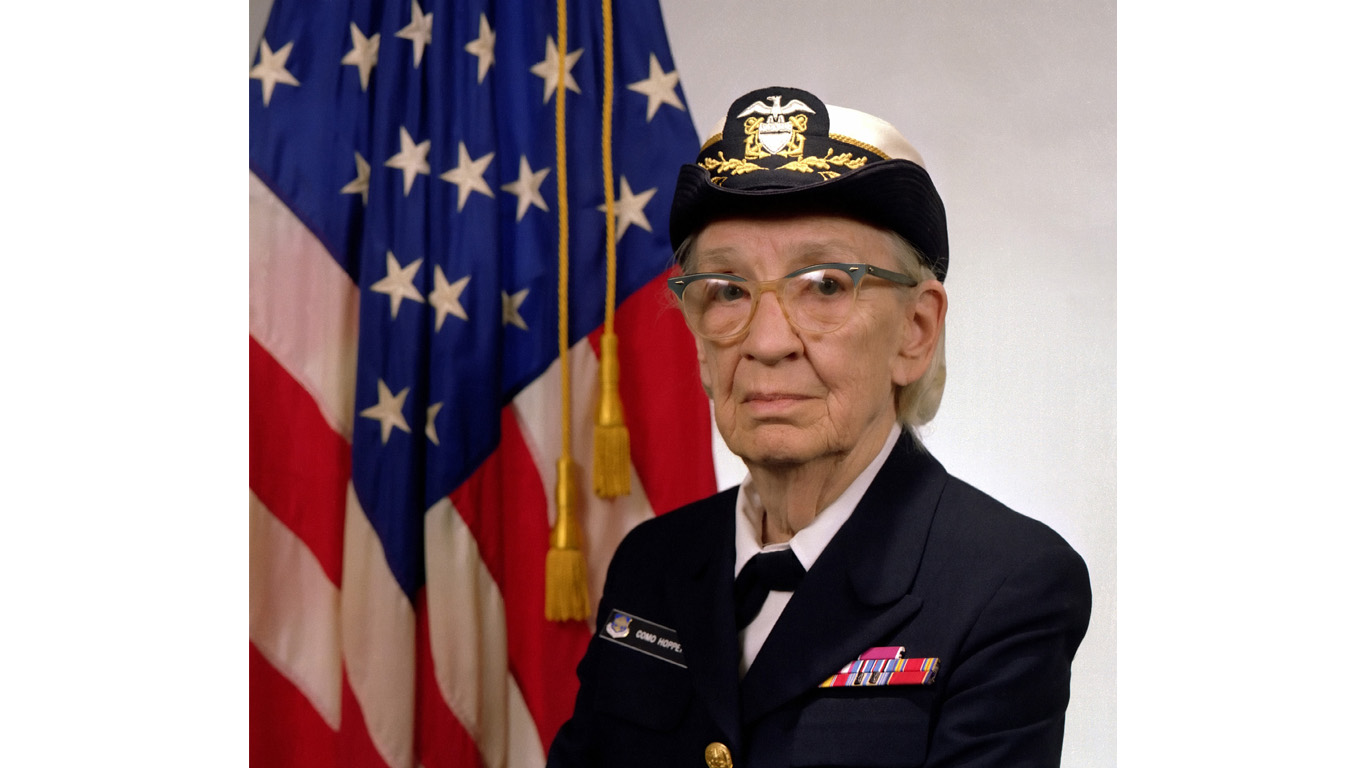
5. Rear Adm. Grace Hopper (1906-1992)
With a background in computer programming and mathematics, Rear Admiral Grace Hopper helped create the Harvard Mark I, a computer utilized by scientists during the Manhattan Project in WWII. Her continued work in the digital arena, from programming to machine learning, helped modernize the Navy. By the time she retired as a rear admiral at almost 80 years of age, she was the Navy’s oldest active-duty officer.
[in-text-ad]
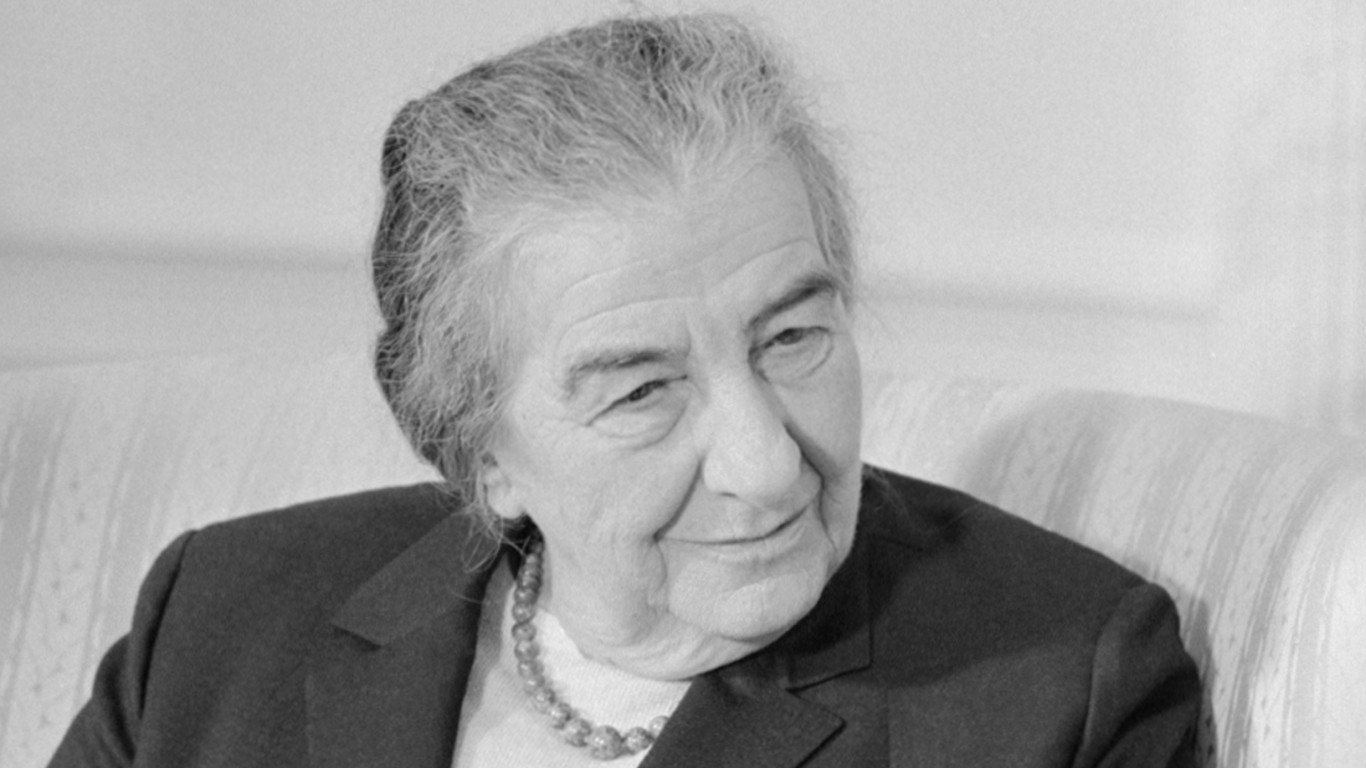
4. Golda Meir (1989-1978)
Golda Meir was Israel’s first and so far only female prime minister. Taking office in 1969, she led the Israeli Army during 1973’s Arab-Israeli War, which eventually defeated the invading armies despite many casualties. Her accomplishments aside, the losses suffered during the war took a toll on her reputation, and she resigned in 1974. Today she is remembered not just for her war efforts but also for her pursuit of diplomacy and peace in the Middle East.
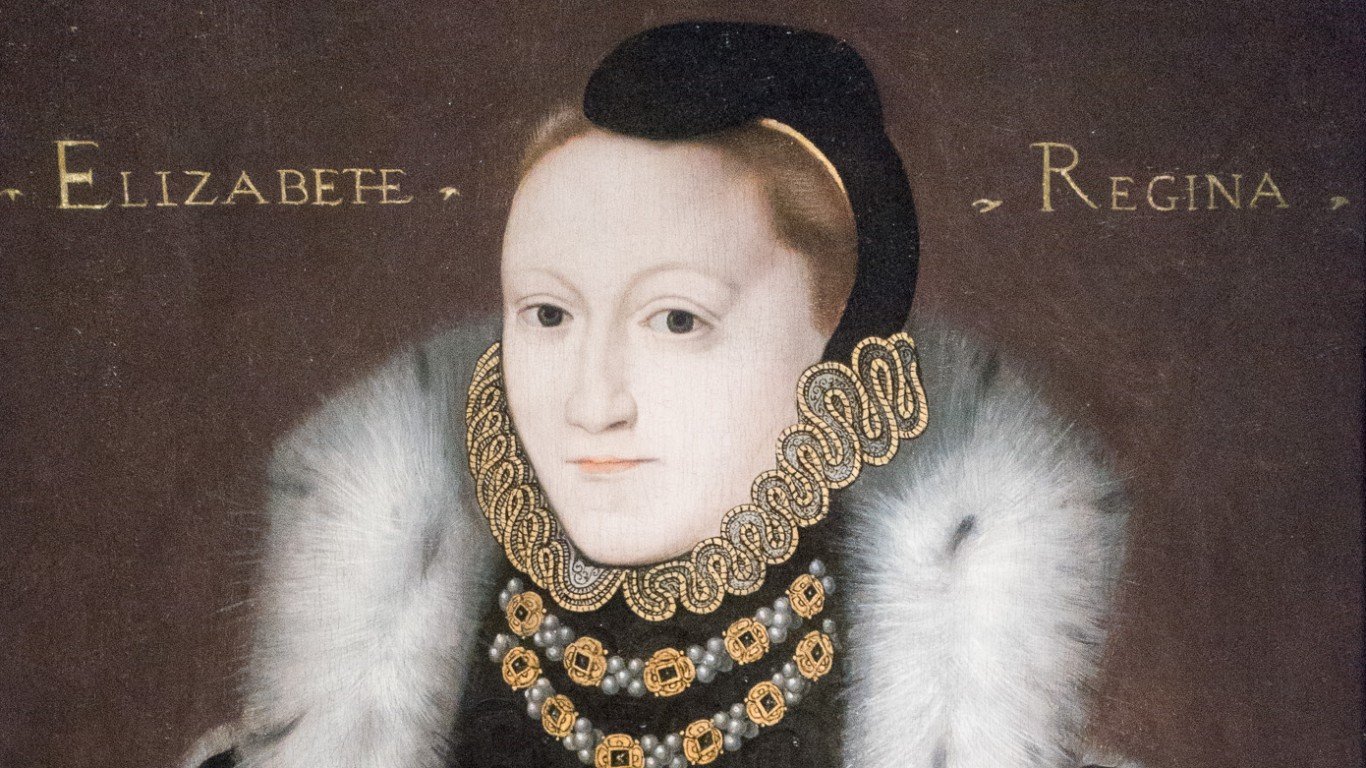
3. Queen Elizabeth I (1533-1603)
Queen Elizabeth the I was the child of King Henry VIII and Anne Boelyn. She enraged many other rulers and holymen by withdrawing from the Catholic Church, and subsequently anticipated retribution. To prepare, she set forth a mission to make the Royal Navy extremely robust, improving upon what was thought possible for ship-based tactics and fighting at-sea. She ruled England as a monarch from 1558-1603, and never married.
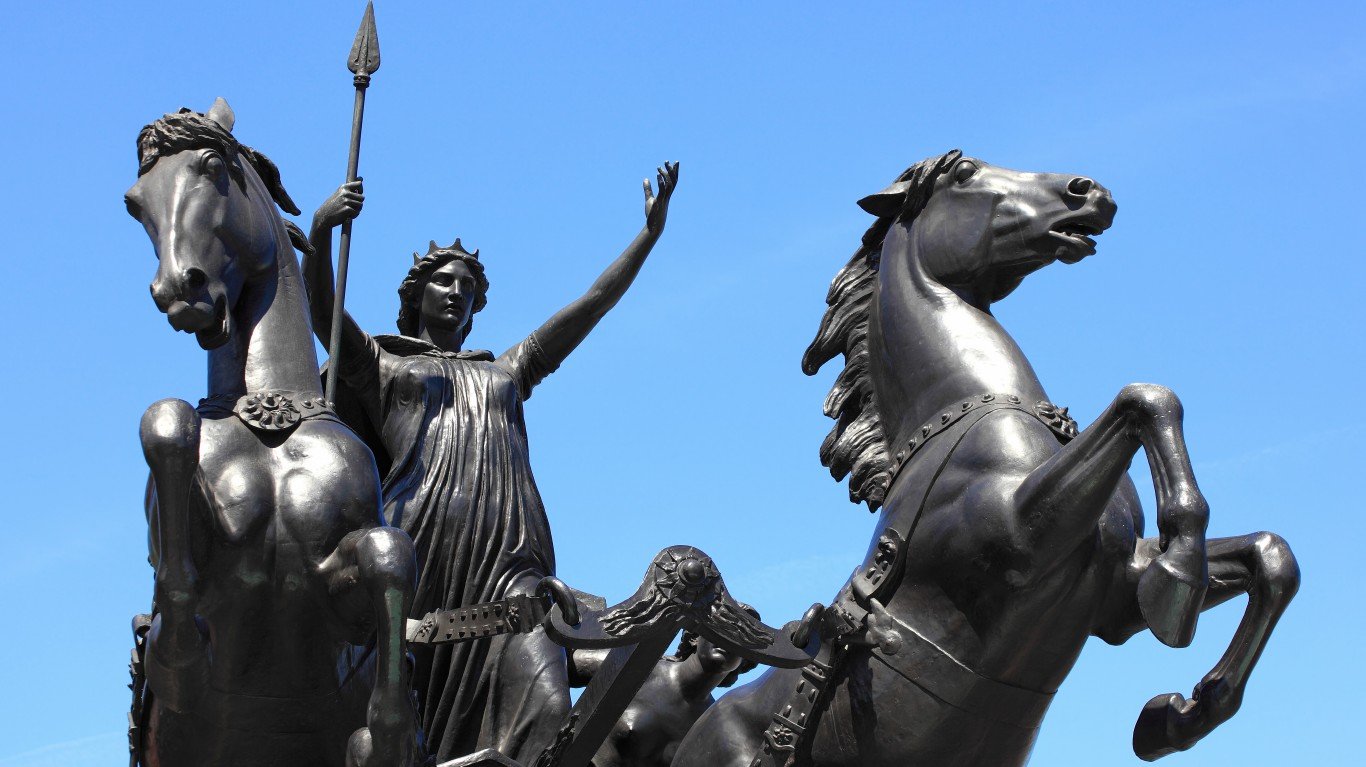
2. Queen Boadicea (circa 30-circa 60)
Queen Boadicea was part of the Celtic Iceni tribe, whose territory included modern-day Norfolk, England. The Roman Empire had recently begun its conquest of Britain, including the region occupied by the Iceni. In the year 60 or 61, Boadicea led an uprising in defense of her people, in the process uniting various Iceni tribes and heading initially successful rebellions in both present-day Colchester and London. However, she eventually died after a battle, leaving the Romans to solidify their rule over Britain. She is revered in Britain, and viewed as a brave and talented warrior.
[in-text-ad-2]
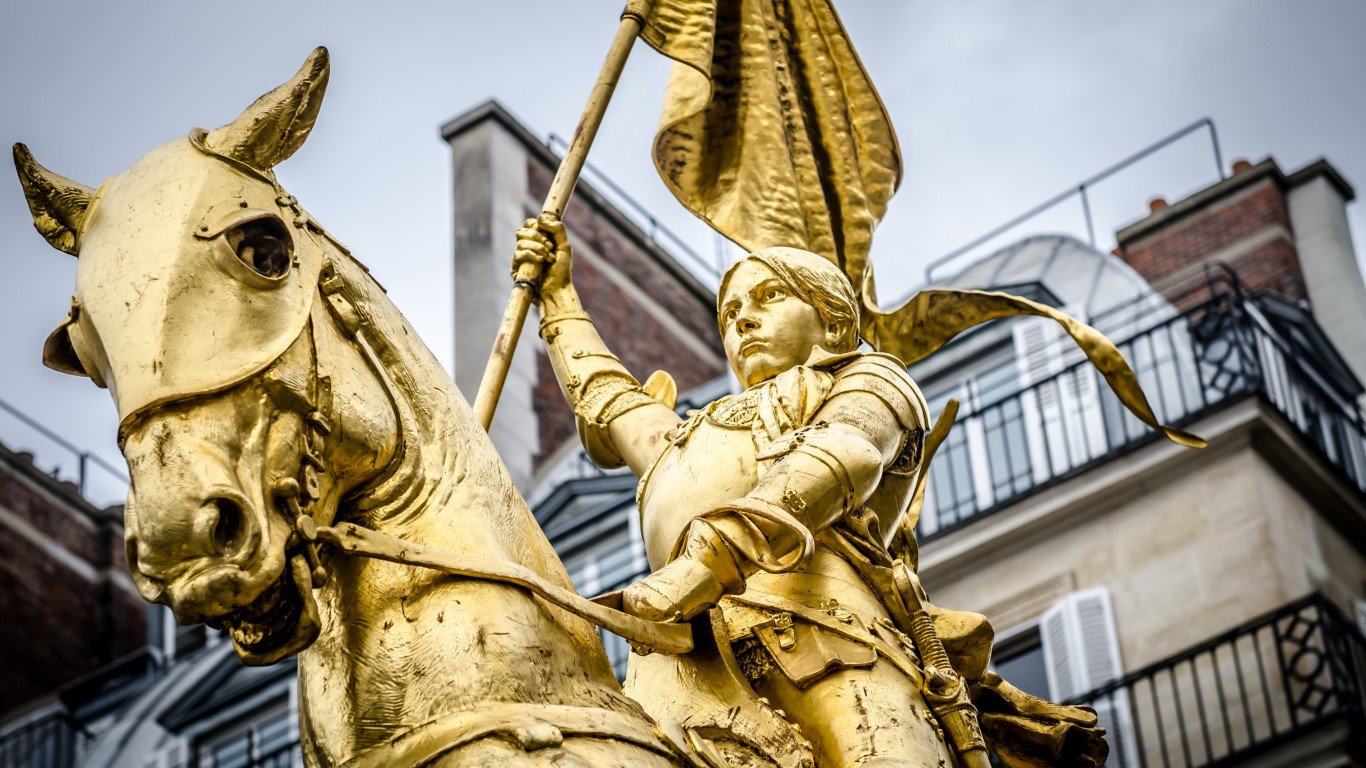
1. Joan of Arc (circa 1412-1431)
Joan of Arc, who was posthumously canonized by the Catholic Church, was ranked the No. 1 greatest woman in military history. As a French teenager, she inhabited a society that had faced significant challenges, such as the Black Plague and invasion by the English during the Hundred Years’ War. Historical records convey her belief that God compelled her to fight for France, and she went on to successfully break the Siege of Orléans. She met her untimely death after capture by the English, who burned her at the stake. Her sacrifice galvanized French resistance, and secured her place as a symbol of martyrdom and French pride.
Sponsored: Attention Savvy Investors: Speak to 3 Financial Experts – FREE
Ever wanted an extra set of eyes on an investment you’re considering? Now you can speak with up to 3 financial experts in your area for FREE. By simply
clicking here you can begin to match with financial professionals who can help guide you through the financial decisions you’re making. And the best part? The first conversation with them is free.
Click here to match with up to 3 financial pros who would be excited to help you make financial decisions.
Thank you for reading! Have some feedback for us?
Contact the 24/7 Wall St. editorial team.
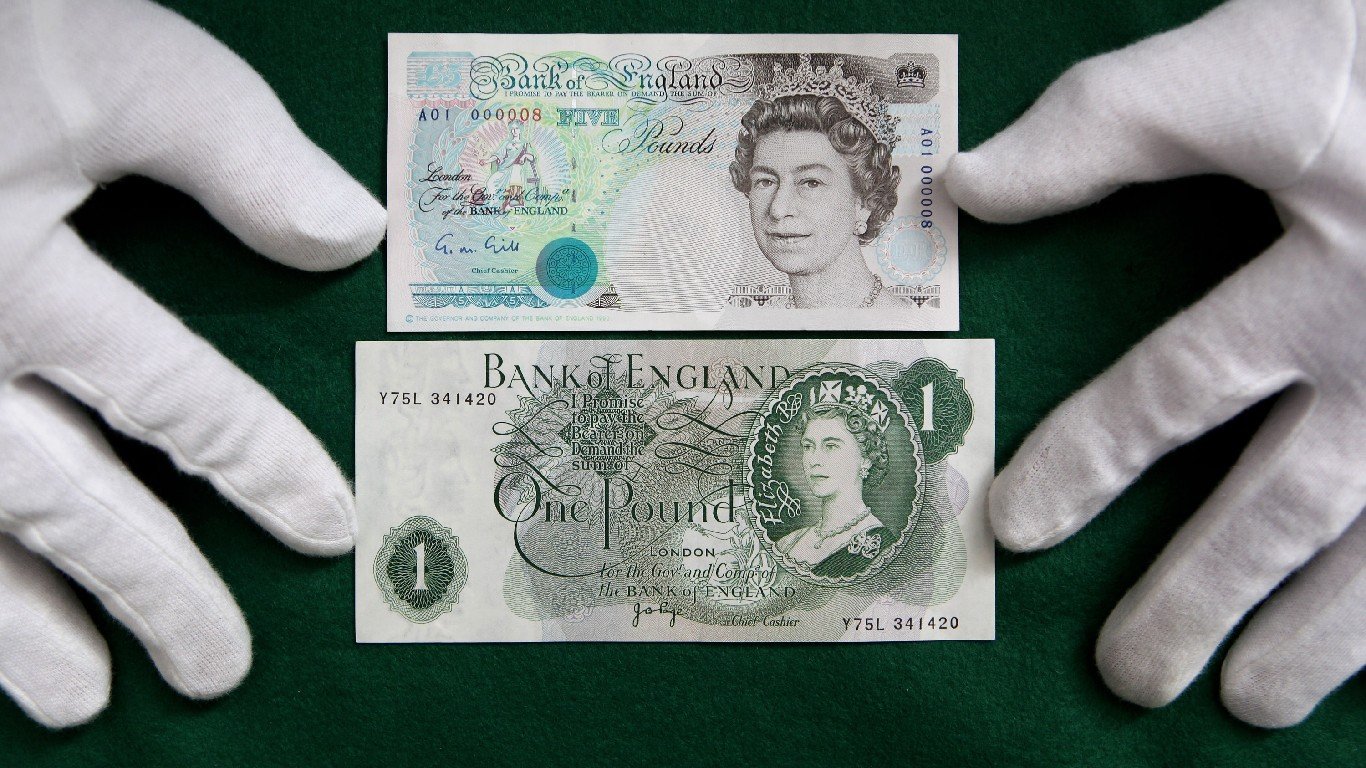 24/7 Wall St.
24/7 Wall St.